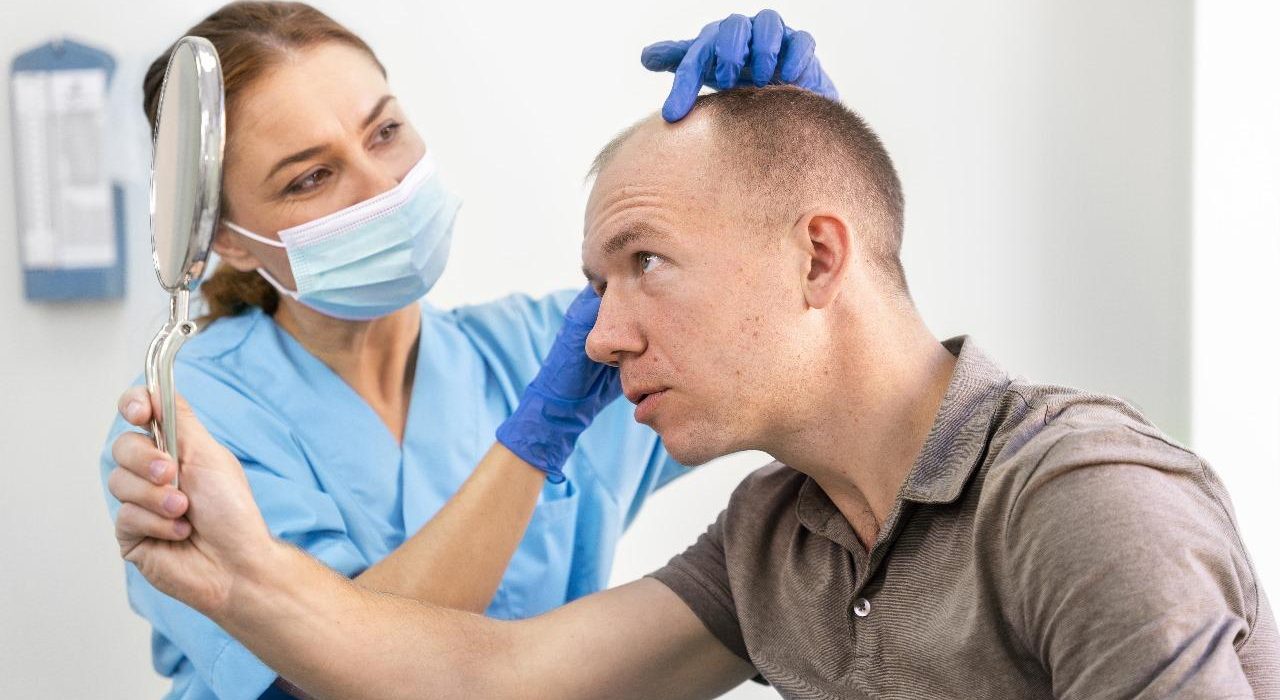Hair loss is a common concern affecting millions of individuals worldwide, regardless of age, gender, or ethnicity. In the pursuit of regaining a full head of hair, people often explore various treatments and solutions. Among these options, hair transplant surgery has gained significant popularity. In this blog, we will delve into hair loss treatment to address questions about which treatment is best, whether it works, and the specific considerations for women. We will also shed light on the perceived pain associated with hair transplant surgery and help you find a reliable hair transplant treatment centre near you.
Which Hair Loss Treatment Is Best?
The quest for the best hair loss treatment is not a one-size-fits-all journey. The effectiveness of treatment can vary depending on the cause and extent of hair loss. The most common hair loss treatments include:
Medications: Over-the-counter and prescription medicines like minoxidil and finasteride can help slow down or even partially reverse hair loss for some individuals.
Platelet-Rich Plasma (PRP) Therapy: PRP therapy involves using the patient’s blood to stimulate hair growth. It’s minimally invasive and shows promising results.
Low-Level Laser Therapy (LLLT): LLLT devices use low-level lasers or light-emitting diodes to stimulate hair follicles, potentially promoting growth.
Hair Transplant Surgery: Hair transplant surgery, particularly follicular unit transplantation (FUT) and follicular unit extraction (FUE), offers a permanent solution by transplanting hair follicles from donor areas to balding areas.
Treatment choice depends on factors like the cause of hair loss, individual preferences, and budget. Consulting a dermatologist or hair restoration specialist can help determine your best treatment option.
Does Hair Loss Treatment Work?
The effectiveness of hair loss treatments can vary from person to person. While some individuals experience significant improvement, others may see only modest or nonexistent results. Having realistic expectations and understanding that results may take time to become noticeable is crucial.
Hair Loss Treatment for Women
Hair loss is not exclusive to men; it affects women as well. Female pattern hair loss can be incredibly distressing, but treatments, including minoxidil and spironolactone, are available for women. It’s essential for women experiencing hair loss to consult a healthcare provider to determine the underlying cause and the most appropriate treatment.
Is Hair Transplant Surgery Painful?
One of the common concerns about hair transplant surgery is the perceived pain associated with the procedure. It’s important to note that advancements in technology and techniques have significantly reduced discomfort during and after the surgery. Local anaesthesia is used during the process to minimise pain, and most patients report only mild discomfort afterwards, which can be managed with pain medication prescribed by the surgeon. The benefits of a permanent solution to hair loss often outweigh the temporary discomfort.
Finding a Hair Transplant Treatment Center near You
Choosing a reputable and experienced hair transplant treatment centre is essential if you’re considering a hair transplant. To find a suitable centre near you, consider the following steps:
Research: Conduct thorough research online to identify clinics or surgeons with a strong reputation for successful hair transplant procedures.
Read Reviews: Look for patient reviews and testimonials to gain insight into the experiences of others who have undergone hair transplant surgery at a particular centre.
Consultation: Consult with the chosen clinic or surgeon to discuss your specific needs, expectations, and concerns. This will also allow you to assess the medical team’s professionalism and expertise.
Conclusion
Hair loss treatment is a multifaceted journey with no one-size-fits-all solution. The best approach depends on individual factors, and the decision should be made after careful consultation with a medical professional. Hair transplant surgery is a viable option for many, and advances in the field have made it less painful and effective. To find the right treatment centre for your needs, conduct thorough research and consult with experienced professionals. Remember, regaining your hair and confidence is possible with the right treatment plan.



